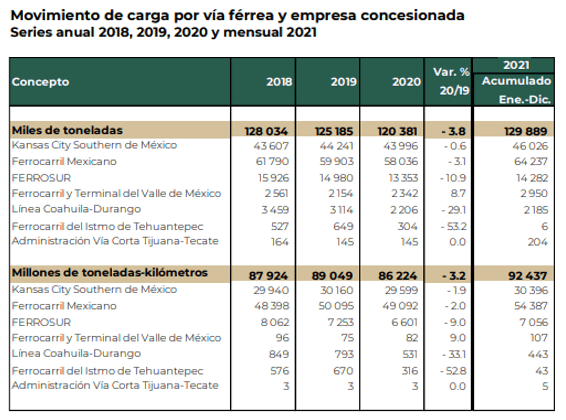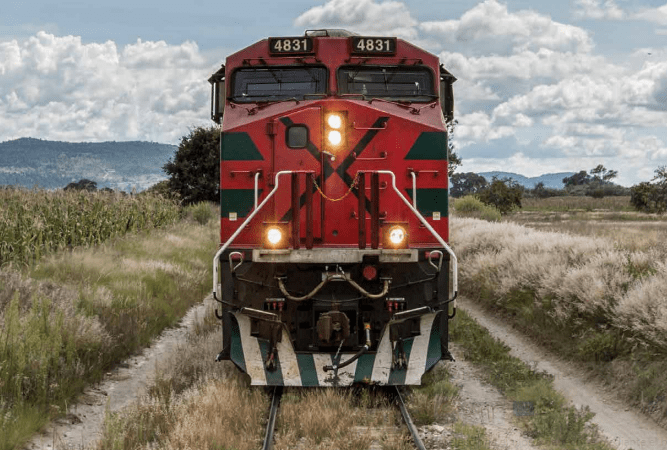Ferromex increased its participation in the freight rail transport service in 2021, while Kansas City Southern de México (KCSM) reduced its share.
Ferromex transported 64 million 237,000 tons last year, reaching a market share of 49.5%, higher than its 2020 benchmark (48.2 percent).
For its part, KCSM reduced its coverage from 36.5% in 2020 to 35.4% in 2021, that is to 46 million 026,000 tons, according to statistics from the Ministry of Communications and Transportation (SCT).
In Mexico, KCSM’s operations are subject to competition from other railroads, particularly Ferromex and Ferrosur, both controlled by Grupo México.

Ferromex and Ferrosur, together are much larger and have significantly greater financial and other resources than KCSM, serve most major ports and cities in Mexico, and together own 50% of Ferrocarril y Terminal del Valle de México (FTVM), which serves industries located in the Mexico City area.
On the one hand, in the same comparison, Ferrosur reduced its market share from 11.1% in 2020 to 11% in 2021. On the other, FTVM increased its share from 1.9 to 2.3%, in that same order.
Ferromex
KCS controls and owns all of the shares of KCSM. Through its 50-year concession from the Mexican government, which could expire in 2047 unless extended, KCSM operates a key commercial corridor of the Mexican rail system, between Mexico City and Laredo, Texas.
Laredo is a major international gateway through which a substantial portion of rail and truck traffic between the United States and Mexico crosses the border.
KCSM serves most of Mexico’s major industrial cities and three of its major seaports.
Currently, Ferromex has three Concession Titles to offer cargo transportation services, identified as: the Pacific-North Railway Communication General Way, the Ojinaga-Topolobampo Short Way (in this the passenger transport service is also provided), and the Nacozari Railway Communication General Way.
In 2021, the United States-Mexico Bilateral Border 21st Century Bilateral Executive Steering Committee (ESC) reviewed the completion of a three-phase modernization of the San Isidro port of entry, one of the busiest border crossings in the world. traveled in the world.
The ESC sets goals within broad objectives: coordinate infrastructure development, expand shipping and trusted traveler programs, establish pilot projects for prior cargo clearance, improve cross-border trade and linkages, and strengthen inter-agency information sharing. of law enforcement.
![]()

